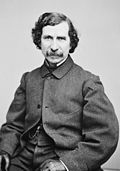Pope Pius IX, Date of Birth, Place of Birth, Date of Death
TweetPope Pius IX
255th Pope of the Catholic Church
 Date of Birth: 13-May-1792
Date of Birth: 13-May-1792
 Place of Birth: Senigallia, Marche, Italy
Place of Birth: Senigallia, Marche, Italy
Date of Death: 07-Feb-1878
Profession: diplomat, Catholic priest
Zodiac Sign: Taurus 
About Pope Pius IX
- Pope Pius IX (Italian: Pio IX, pronounced Pio nono; born Giovanni Maria Mastai Ferretti; 13 May 1792 – 7 February 1878) was head of the Catholic Church from 16 June 1846 to his death on 7 February 1878.
- He was the longest-reigning elected pope in history, serving for over 31 years.
- During his pontificate, Pius IX convened the First Vatican Council (1869–70), which decreed papal infallibility, but the council was cut short owing to the loss of the Papal States. Europe, including the Italian peninsula, was in the midst of considerable political ferment when the bishop of Imola, Giovanni Maria Cardinal Mastai Ferretti, was elected pope.
- He took the name Pius, after his generous patron and the long-suffering prisoner of Napoleon, Pius VII.
- He had been elected by the faction of cardinals sympathetic to the political liberalization coursing across Europe, and his initial governance of the Papal States gives evidence of his own moderate sympathies.
- A series of terrorist acts sponsored by Italian liberals and nationalists, which included the assassination of (among others) his Minister of the Interior, Pellegrino Rossi, and which forced Pius himself to briefly flee Rome in 1848, along with widespread revolutions in Europe, led to his growing skepticism towards the liberal, nationalist agenda.
- Through the 1850s and 1860s, Italian nationalists made military gains against the Papal States, which culminated in the seizure of the city of Rome in 1870 and the dissolution of the Papal States.
- Thereafter, Pius IX refused to accept the Law of Guarantees from the Italian government, which would have made the Holy See dependent on legislation that the Italian parliament could modify at any time.
- Pius refused to leave Vatican City, declaring himself a "prisoner of the Vatican".
- His ecclesiastical policies towards other countries, such as Russia, Germany or France, were not always successful, owing in part to changing secular institutions and internal developments within these countries.
- However, concordats were concluded with numerous states such as Austria-Hungary, Portugal, Spain, Canada, Tuscany, Ecuador, Venezuela, Honduras, El Salvador, and Haiti. In his encyclical Ubi primum he emphasized Mary's role in salvation.
- In 1854, he promulgated the dogma of the Immaculate Conception, articulating a long-held Catholic belief that Mary, the Mother of God, was conceived without original sin.
- He conferred the title Our Mother of Perpetual Help on a famous Byzantine icon from Crete entrusted to the Redemptorists.
- In 1862, he convened 300 bishops to the Vatican for the canonization of Twenty-six Martyrs of Japan. His 1864 Syllabus of Errors stands as a strong condemnation against liberalism, modernism, moral relativism, secularization, and separation of church and state.
- Pius definitively reaffirmed Catholic teaching in favor of the establishment of the Catholic faith as the state religion in nations where the majority of the population is Catholic.
- However, his most important legacy is the First Vatican Council, convened in 1869, which defined the dogma of papal infallibility, but was interrupted as Italian nationalist troops threatened Rome.
- The council is considered to have contributed to a centralization of the church in the Vatican, while also clearly defining the Pope's doctrinal authority. Many recent ecclesiastical historians and journalists question his approaches.
- His appeal for public worldwide support of the Holy See after he became "the prisoner of the Vatican" resulted in the revival and spread to the whole Catholic Church of Peter's Pence, which is used today to enable the Pope "to respond to those who are suffering as a result of war, oppression, natural disaster, and disease".
- After his death in 1878, his canonization process was opened on 11 February 1907 by Pope Pius X, and it drew considerable controversy over the years.
- It was closed on several occasions during the pontificates of Pope Benedict XV and Pope Pius XI.
- Pope Pius XII re-opened the cause on 7 December 1954, and Pope John Paul II proclaimed him Venerable on 6 July 1985.
- He was beatified on 3 September 2000 after the recognition of a miracle.
- Pius IX was assigned the liturgical feast day of 7 February, the date of his death.
Read more at Wikipedia


